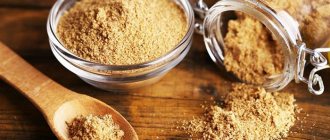Causes
- Irritable bowel syndrome
Intestinal dysfunction occurs due to severe stress. Strong worries about the baby, lack of sleep and fatigue, hormonal imbalances are a typical condition for a woman after childbirth.
The syndrome is characterized by the absence of fever, vomiting and blood in the stool. In addition, such diarrhea does not wake you up at night. During sleep, the muscles relax and the diarrhea goes away.
In this case, diarrhea can be cured with the help of sedatives. Before use, be sure to consult your doctor! How to get rid of stress after childbirth, read the article “Sedatives for nursing mothers.”
A woman should carefully select her diet when breastfeeding. The health of both the baby and the mother depends on nutrition. Too fatty and spicy foods, foods containing chemicals and preservatives, and stale foods disrupt intestinal function.
Poisoning is accompanied by nausea and vomiting, fever. In this case, it is necessary to urgently contact a specialist to prescribe treatment. Most likely, you will need diet adjustments and medications.
Sometimes an allergic reaction leads to diarrhea. If you are allergic to any food, then you should exclude such food from the menu. Then the diarrhea will go away.
Unwashed fruits and vegetables and poor hygiene contribute to the appearance and proliferation of harmful bacteria in the intestines. They disrupt the microflora and poison the body. In this case, you need to see a doctor.

Causes of intestinal disorder
The greatest danger is diarrhea caused by infection or poisoning. In this case, there is a sharp decrease in immunity, rapid accumulation of toxins in the body and a general deterioration in the health of the nursing mother. The main reasons for the appearance of diarrhea are:
- Infection in the intestines. It can enter a woman’s body along with pathogenic bacteria. This occurs when hygiene standards are not observed - infrequent hand washing, as well as in the case of eating insufficiently pure vegetables and fruits. Disturbed microflora and the presence of toxins provoke frequent trips to the toilet.

To treat diarrhea in this case, the girl needs to see her doctor. Only a qualified doctor can prescribe anti-diarrhea medications approved for use while breastfeeding a newborn. Breastfeeding in this case is allowed - there is no danger to the baby.
- Food poisoning. Occurs when consuming low-quality products. Along with stale food, bacteria enter the body, disrupting the digestion process. Dysbacteriosis appears. In addition to diarrhea, nausea and vomiting and increased body temperature are noted.
The fight against diarrhea in this case should include taking antibiotics. Only a medical professional can prescribe the necessary tablets that can be taken. It is equally important to follow a special diet and add foods to your diet that promote the rapid restoration of microflora.
- Allergic reaction. To combat this cause of the problem, a nursing mother needs to determine which food product causes the allergy and eliminate it from her diet.
- Irritable bowel syndrome. Diarrhea in this case is not accompanied by any additional deterioration in the mother's health. In addition, loose stools do not cause restless sleep. A woman faces a problem while she is awake. Usually in such a situation they do not stop breastfeeding and are treated with various sedatives approved for use by young mothers.
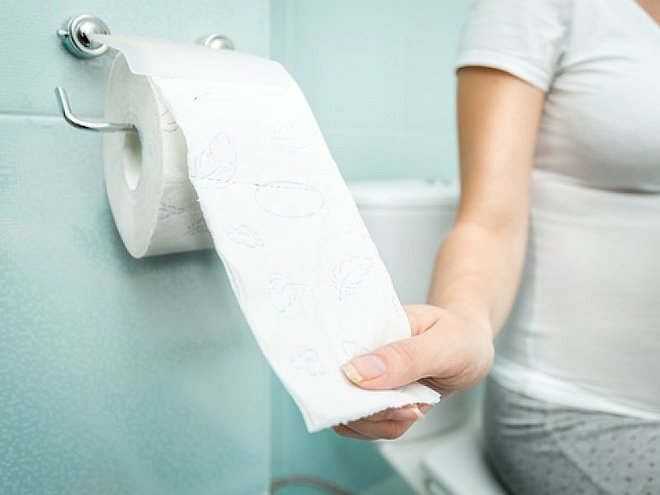
The danger of diarrhea: should you stop breastfeeding?
Doctors are confident that diarrhea in a nursing mother is more dangerous for the woman, and not for the baby. So intestinal infection is transmitted through unwashed hands, and not through milk. Food poisoning only affects the intestines and also does not affect the condition of breast milk.
Breastfeeding should be stopped if your doctor prescribes medication for treatment. Many folk remedies and some medications are also harmless to milk and infants.
A woman needs to have the strength to take care of a child. If you don't sleep and eat well, your milk supply may decrease. As a result, diarrhea will lead to deterioration of lactation. If your milk disappears, use the advice in the article “Effective methods for enhancing lactation.”
Rare diarrhea will not harm a nursing mother. However, frequent or chronic diarrhea leads to dehydration. The body loses water, vitamins and beneficial elements.
In case of illness, it is important to restore the amount of lost fluid. If the body loses more than 10% of fluid, serious disorders begin. This is weakness and lethargy, severe weight loss and exhaustion.
Also, see your doctor if you have severe and prolonged diarrhea that lasts more than three days.

Is it possible to breastfeed if you have an intestinal disorder?
Mothers often wonder whether it is possible to breastfeed a newborn with diarrhea and what consequences can be expected. Diarrhea for more than 3 days during breastfeeding leads to dehydration of the body, which means the amount of breast milk decreases.
During the fight against viruses, the mother's body produces antibodies, which are passed on to the child and strengthen his immune system. But it is prohibited to continue feeding the baby if there is pain in the abdomen, high temperature as a result of severe food poisoning or rotavirus infections entering the mother’s body.
It is necessary to consult a doctor and only after permission from a specialist to continue breastfeeding.
How to treat diarrhea
First of all, it is necessary to establish nutrition. Eliminate harmful foods and drinks from your diet. Eat vegetable broths and soups, boiled and stewed dishes.
The diet for diarrhea excludes spicy, fried and salty foods, dairy and fermented milk products, fresh fruits and vegetables, sweets and carbonated drinks, and oven-baked foods. You can eat porridge with water, lean boiled meat and lean fish.
On the first day of diarrhea, there is usually no appetite. However, you definitely need to eat. Vegetable broth will restore strength and maintain breast milk production.
You can use folk remedies that will not harm a nursing mother and baby:
An effective anti-inflammatory agent. To prepare the decoction, add one teaspoon of dry oak bark to 300 ml of hot water and leave to boil for 10 minutes. Drink the cooled and strained broth one tablespoon three times a day.
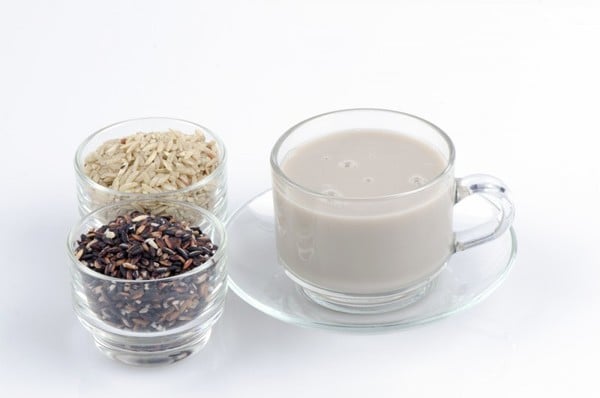
The enveloping substances in the decoction will protect the intestines from gastric acid and relieve irritation. To prepare the product, add two teaspoons of washed, polished rice to 500 ml of boiling water. Cook the mixture for 40 minutes over low heat. Cool the broth and strain through cheesecloth.
Drink a quarter glass throughout the day at intervals of two to three hours. Within an hour after administration, the product improves digestion!
Few people know that pomegranate peels are no less beneficial than pomegranate juice. Antibacterial substances in the peel kill germs that cause diarrhea.
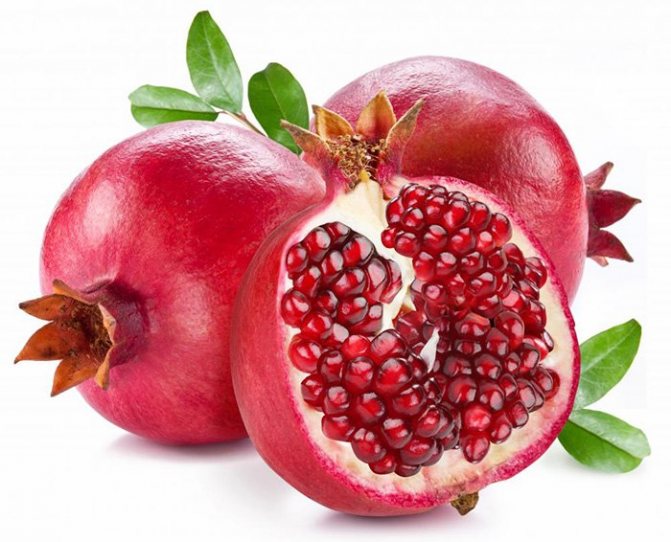
Peel the pomegranate and remove the white pulp from the skin. Grind the peels and pour a glass of boiling water. Infuse the decoction until the water turns color. Drink the whole glass. Within 10 minutes the condition will improve.
Can be used for intestinal infections. Pour a tablespoon of ripe fresh berries with a glass of boiling water and leave for half an hour. Drink half a glass of the strained broth two to three times a day.
To stop fluid loss, drink more. If you have diarrhea, drink at least three liters of water (whereas a normal person needs two liters). Drink boiled or filtered water, still mineral water, broths and black tea without sugar.
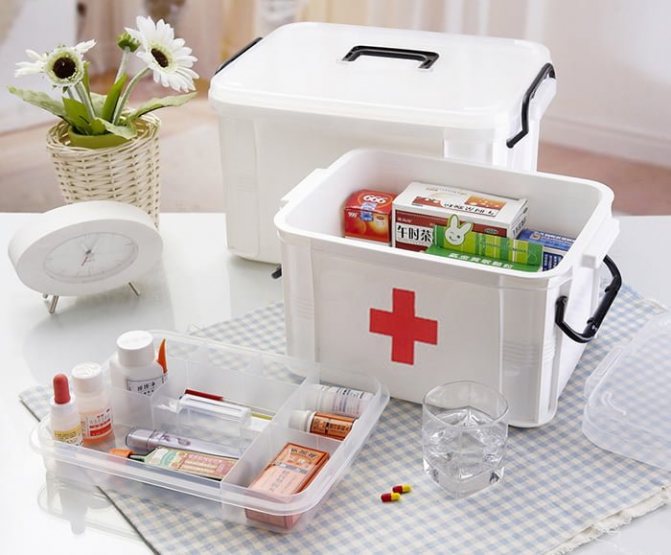
Recipes
Pomegranate peels contain substances that destroy pathogenic microorganisms. The peel of one fruit is peeled from the white part, crushed, and poured with boiling water in a volume of 200 milliliters.
Leave until the infusion turns red. The infusion should be drunk completely.
Diarrhea can be effectively treated with homemade apple cider vinegar. Add 1 - 2 tablespoons of apple cider vinegar to 200 ml of high-quality water. Drink in small sips every 5 - 7 minutes.
Pour 700 ml of boiling water over half a glass of bird cherry berries and boil for five minutes. Leave the broth for one hour, strain. The infusion should be drunk four times a day, two tablespoons.
The problem of intestinal upset can be solved by using an infusion of plantain seeds.
Add one tablespoon of raw material to half a glass of boiling water and leave for twenty-five minutes. Then the entire infusion should be drunk along with the seeds.
Loose stools can be treated with dill decoction. For the product, use one tablespoon of greens per 200 ml of water, boil for 4 - 6 minutes. The decoction should be drunk immediately after bowel movement.
One tablespoon of oak bark is added to boiling water (700 ml). Leave for one hour and use one tablespoon five times a day (20 minutes before meals and 2 hours after meals).
To stop dehydration and maintain lactation, you should drink plenty of fluids.
Serious consequences can occur with intestinal infections and food poisoning without proper treatment. Disturbances in the functioning of the intestines occur when pathogenic microorganisms multiply.
Fever, very frequent loose stools, vomiting, nausea are symptoms that require urgent consultation with a specialist and treatment.
An infection in a nursing mother can be treated with approved medications that absorb and remove toxins from the body with enterosorbents.
A number of drugs of natural origin are safe.
- Activated carbon.
- Polyphepan.
- Smecta.
- Filtrum.
Silicon-based products quickly remove toxins from the body. It is important to choose the right drug in the correct dosage, taking into account individual characteristics and existing diseases. Only a doctor can do this.
Enterosgel is used for the treatment of severe poisoning. The drug quickly removes poisons from the body. The dose for different age groups is selected individually.
On the first day of the disease, drink an aqueous solution of the gel at least three times. Subsequent rates may be reduced.
The drug Polysorb is used after consultation with a doctor. There are contraindications (intestinal atony, acute duodenal and gastric ulcers).
The product is effectively used for drug and food allergies, intestinal infections, poisoning, and intoxication. When breastfeeding, the dosage is determined by the attending physician.
For intestinal infections it is important:
- remove toxins produced by harmful microorganisms;
- normalize stool;
- restore the microflora of the gastrointestinal tract;
- stop fluid loss.
Most cases of intestinal dysfunction do not require discontinuation of breastfeeding.
In case of a viral disease, severe symptoms (fever, vomiting), or prescription of medication, a temporary break is possible. Feeding the child as usual begins after rehabilitation therapy.
Maintaining hygiene during breastfeeding is the main preventive measure to prevent the transmission of infection to the baby.
For example, rotavirus infection is transmitted fecal-orally, through dishes, hands, towels, contaminated products, and water.
Diet is the main measure to restore intestinal microflora. It is necessary to consume foods containing lacto and bifidobacteria.
They eliminate pathogenic bacteria and other microbes. In severe cases, the doctor decides to administer dosage forms.
Medicines for diarrhea
In addition, the doctor may prescribe medications. Among the safe remedies for nursing mothers and infants in case of poisoning and intestinal infections are Atoxil and Sorex. They bind and remove toxins from the body. The preparations are a powder that is diluted in water and drunk an hour before meals.
To restore the liquid, Regidron is used, which also comes in sachets of powder. The contents of one sachet are dissolved in a liter of warm water and drunk throughout the day.
However, there are medications that negatively affect milk production and the baby’s well-being. If your doctor has prescribed such medications, you should not refuse treatment in favor of breastfeeding.
Why is this happening
When breastfeeding, there are several main causes of diarrhea in the mother.

Irritable bowel syndrome
The most common everyday reasons can cause indigestion: daily stress, emotions, experiences - things that a young mother faces almost every day. With this syndrome, there is no vomiting, the temperature is normal, and there is no blood in the discharge. Diarrhea does not torment mom at night, because during sleep the intestinal walls relax and do not stimulate new urges. However, getting out of bed in the morning tones your muscles, and your diarrhea is right there.
Dysbacteriosis
It is known that bifidobacteria live in the intestines - normally they predominate. The presence of E. coli, staphylococcus and fungi is also normal. If there is a lack of enzymes in the mother’s body, or if foreign bacteria enter, the intestinal microflora is disrupted. The symptoms of dysbiosis are very similar to irritable bowel syndrome, body temperature will most likely also remain normal, and vomiting will not appear.
Poisoning
Products are not always of high quality, and a nursing mother runs the risk of eating something stale, which will inevitably lead to poisoning. Distinctive symptoms of poisoning: nausea, vomiting, moderately elevated temperature, stomach pain. Poisoning can usually be diagnosed 2-6 hours after consuming the unfortunate product.
Intestinal infections
Poorly washed food, dirty hands, poor hygiene in the home - and hello again, diarrhea! This is exactly what is called a “digestive disorder.” Usually, with an intestinal infection, there is no need to interrupt breastfeeding, since the disease is transmitted through unwashed hands, and not through breast milk. The main action of the mother, in order not to harm the baby, is to thoroughly wash her hands as often as possible, before each touch and feeding of the baby.
Allergic reaction
Sometimes food allergies occur suddenly and can also cause diarrhea. Most often, allergies manifest themselves in skin rashes and stomach upset. You need to exclude suspicious foods from your diet and observe what happens to you.

Rotavirus infection
An extremely unpleasant disease that is more severe in children. Sometimes it is called “stomach flu”, which is incorrect, since the causative agents are viruses of a completely different group. Rotavirus infection is characterized by:
- sudden and acute onset;
- vomiting (often with mucus);
- a sharp increase in temperature;
- loose and yellow stool on the first day, clay-like, gray stool on the second and third.
Breastfeeding during rotavirus can and should be done, since the mother’s immunoglobulins from milk protect the baby from infection. There is no need to kiss or touch the child with unwashed hands. But you can give breastfeeding.
If diarrhea is prolonged (more than 3 days), severe, it is very dangerous and requires immediate medical intervention. Diarrhea that lasts longer than three days not only causes dyspepsia (dehydration). It can provoke shock, in which cold sweat appears throughout the body, weakness, throbbing, and nausea. With such symptoms, urgent hospitalization is necessary!
Separately, it is necessary to highlight the most dangerous form of diarrhea – bloody stool. It is also called “black stool” because the blood can appear in the form of clots and can stain the stool black. It is necessary to call an ambulance, because this means that intestinal bleeding has begun, and hospitalization cannot be delayed.
Why is it important to call a doctor?
If a nursing mother has diarrhea, it is important to call a doctor and identify the pathogen. Treatment of diarrhea, like any other treatment, is prescribed by the doctor, and not by the patient himself. Diarrhea is dangerous not only when it is combined with vomiting, fever, but even in the case of slight dilution of the stool. Because the main danger of diarrhea is dehydration. It is important to replenish fluid loss. After all, by losing moisture, the body also loses salts, which are necessary for its stable functioning.
Chronic diarrhea is dangerous because dehydration occurs more rapidly with this diagnosis. The loss of ten percent of fluid from the body causes extremely serious disorders, and if its volume reaches 25 percent, death will occur. Making the correct diagnosis is half the success in treating diarrhea.
How to treat diarrhea in a nursing mother
It is the prerogative of the doctor to prescribe medicine for diarrhea during breastfeeding. Do not be afraid to take medications, because in modern medicine there are many opportunities to prescribe treatment that is acceptable during breastfeeding. However, if for some reason it is impossible to see a doctor, the mother can try to help herself on her own.
Medicines
How can you treat diarrhea while breastfeeding?
- If the body is already quite severely dehydrated, you can use Regidron. This remedy restores the balance of salts. The drug is a powder that must be diluted in water and drunk throughout the day.
- Regular activated carbon will help remove toxins from the body. Typically, recommendations for its use prescribe taking 1 tablet for every 10 kilograms of the patient’s weight.
- Among the medications considered safe for mother and baby are Polysorb, Sorbex and Atoxyl, which, like coal, are sorbents. They also come in powder form, which must be dissolved in water and drunk before meals.
- Of the drugs familiar to everyone, we can also recommend Smecta. This drug will not harm a nursing mother, since the active ingredient, diomexite, is a natural component; it quickly stabilizes the functioning of the digestive system and soothes irritated mucous membranes. The drug will also help remove gases.
Folk remedies
You can stock up on the medications that are most often recommended for diarrhea during breastfeeding or buy them at your nearest pharmacy:
- Oak bark decoction. The product is safe for both mother and baby, has a strong anti-inflammatory effect and is easily accessible. Pour one teaspoon of the dry preparation into a glass of boiling water, boil for about ten minutes and drink one tablespoon of the cooled broth three times a day.
- Rice water. It has intestinal-coating properties, which will help protect the irritated mucous membrane from acidic gastric juice, as well as relieve irritation. Add two teaspoons of rice to half a liter of boiling water (rinse well first) and cook for 40 minutes over low heat. Cool, strain and drink one-fourth glass every 2-3 hours.
- Pomegranate peels. Pomegranate peels have unique antibacterial substances that can rid the body of germs that cause diarrhea. To prepare, peel the pomegranate, remove the white part from the peel, chop and pour one glass of boiling water. Leave until the water turns color and drink the whole thing.
Traditional therapy
There are the following traditional medicine recipes that will help cope with the disorder:
- Pomegranate. You can treat diarrhea during breastfeeding with the help of fruit. To do this, pour boiling water over several pomegranate peels and let it brew for about 5 minutes. Drink the resulting drink like tea - several times a day.
- Rice. A decoction of cereals serves as an excellent fixative for loose stools. It is enough to ingest the broth in which the rice was cooked. But in this case, it is worth remembering that frequent use of this liquid can cause constipation in the baby, so you should not abuse it.
- Oak bark. The principle of preparing this decoction is similar to the drink made from pomegranate peels.
- Mint. Preparing a drink from lemon balm is very simple - pour a tablespoon of the herb into a glass of boiled water and let it brew for 40 minutes. Drink mint water before meals 4 times a day.
- Bird cherry. Add a small handful of dried flowers to boiling water and let stand for half an hour. Drink the strained infusion several times a day. Best for treating diarrhea caused by infection.

To prevent diarrhea from reappearing after treatment, you should follow a special diet during breastfeeding. At first, you need to eat light vegetable broths and dairy-free cereals. The rest of the food should be introduced gradually.
When diarrhea occurs, the mother's diet should not contain ingredients that can cause allergies. It is necessary to pay special attention to the choice of products - they must be fresh and of high quality.
Compliance with the rules of personal hygiene, consumption of quality products and a stable psychological state of the young mother will help avoid the appearance of intestinal disorders.
What drugs are prohibited
Many medications for diarrhea cannot be taken while breastfeeding. These are the antibiotics Tetracycline, Lincomycin and the common Levomycetin. The latter is strictly prohibited during breastfeeding. It penetrates into milk very quickly and can cause the development of such an unpleasant disease as aplastic anemia due to disruption of bone marrow hematopoiesis.
It is also contraindicated to take antibiotics from the fluoroquinolone group (the well-known ciprofloxacin, nolitsin, abactal), which negatively affect the osteochondral growth of the infant.
Treatment of diarrhea and diarrhea
During diarrhea while breastfeeding, the mother has a question: “How to treat diarrhea so as not to harm the baby?” It should be remembered that in no case should you self-medicate; the first step in therapeutic measures for diarrhea should be a trip to the doctor. If the test results show that there is no infection and there is no need to take antibiotics, Activated Charcoal or Enterosgel will most likely be prescribed. These drugs are 100% harmless for both mother and baby. Their goal is to accumulate and remove toxic substances from the body. In this case, medications do not pass into breast milk, as they are not able to be absorbed into the blood.
There are other drugs that are allowed for nursing mothers:
- Sorbex;
- Lactofiltrum;
- Atoxyl.
Products made with apple extract (pectin) will help you cope perfectly with diarrhea.
Is it possible to continue feeding?
Whether you really need to stop breastfeeding if you have diarrhea depends on your doctor's diagnosis. A wide selection of modern drugs allows you to choose a treatment for your mother that will not interfere with feeding your baby breast milk. These drugs do not pass into milk and are quickly excreted from the body. In some cases, the mother can guess the time of lactation and take the drug immediately after feeding, so that by the time of the next feeding it has time to leave the body.
Sometimes doctors recommend stopping breastfeeding and transferring the child to temporary artificial feeding in case of acute bacterial intestinal infections such as dysentery and salmonellosis. The purpose of weaning is to minimize the risk of infection. But not everything is so simple here. The infection is transmitted primarily through the hands. If the child is already infected, but there are no clinical manifestations yet, the mother’s immunoglobulins will help him cope with the infection. If he is transferred to a mixture, then these changes will only worsen the situation. Therefore, breastfeeding consultants believe that breastfeeding should be continued even in this difficult situation.
It would be right for the mother to consult with a good pediatrician and breastfeeding consultant, weigh the pros and cons, and only then make a decision.
Diarrhea is an unpleasant disorder of the gastrointestinal tract that has a lot of severe symptoms. And diarrhea in a nursing mother is doubly dangerous. Therefore, mothers who breastfeed and are responsible for the life of their baby naturally worry about the health of the child. Despite all the difficulties, everyday hassles, fatigue and poor health, you need to be attentive to such diseases that you encounter so as not to disrupt the lactation process and not harm the baby.
Causes of diarrhea in nursing mothers?

- Food poisoning. Often women follow an incorrect diet during breastfeeding: they eat fatty or spicy foods, fruits, and vegetables with high concentrations of chemicals. There are cases that, due to their carelessness, mothers eat a dish that is not fresh, which will certainly lead to unpleasant consequences. And diarrhea during breastfeeding can also be caused by laxative foods: kefir, yogurt, yogurt, beets, apples, pears. In case of poisoning, the following symptoms appear: diarrhea, nausea, high fever, weakness.
- Irritable bowel syndrome. Some mothers, after the birth of a child, are in a state of stress for a long time. They constantly worry about the baby's health. With emotional stress, stomach upsets may appear (diarrhea, accompanied by severe flatulence and sharp abdominal pain). Interesting fact: diarrhea symptoms do not bother you while you sleep. After all, when a person sleeps, the muscles are completely relaxed, and the body as a whole rests. The syndrome is much easier to tolerate, there is no fever or vomiting, but you should still not ignore doctor’s consultations.
- Allergic reaction to food. After giving birth, women may change their food preferences, and sometimes develop allergies to foods that were previously digested normally. In addition to diarrhea, skin rashes, redness and itching appear.
- Intestinal infections also provoke loose stools in a nursing mother. After all, after childbirth, her immunity is weakened and vulnerable. The bacilli enter the body through fruits, vegetables, meat, fish and milk. If hygiene rules are not followed, there is also a risk of infecting both yourself and your child.
- Viral diseases. No one is safe from contracting the flu, because this virus can be caught on the street, in a hospital, or in a store. It is especially dangerous for mothers and small children who are breastfed.
There is no need to delay treatment. Your discomfort and poor health have a negative impact on your child.
What is diarrhea?
Diarrhea has an official name - diarrhea, which is “established” only when a person goes to the toilet with loose stool more than 3 times a day. At the same time, the amount of feces is also observed when establishing a diagnosis - at least 250 ml per day. It is these two factors that the specialist establishes to diagnose the disease and prescribe subsequent treatment.
This is interesting: Many people call diarrhea only an intestinal disorder, which is accompanied by an unpleasant symptom (stomach twisting), as well as the excretion of liquid-like feces. Diarrhea is also often accompanied by nausea and vomiting. But if this happens for only one day, then the problem should not be treated as diarrhea - it is enough to eat foods that have a binding effect.
The development of diarrhea or intestinal disorder is influenced by a certain pathogen that has entered the body - it will also quickly penetrate into the baby’s body along with breast milk. Therefore, a young mother who is on breastfeeding should be attentive to her condition and resort to immediate elimination of the problem, even with a one-time intestinal disorder.
Video
Is it possible to breastfeed a baby?
Every responsible mother will think: is it possible to breastfeed a child with diarrhea? When it comes to your child's health, you should not ignore your doctor's recommendations. Having identified the true cause of the disease, he will prescribe the appropriate treatment.
Most often, a mother’s diarrhea during breastfeeding goes away in 1-2 days, without serious drug treatment. In addition, harmful bacteria that arise from food poisoning only affect the intestines, but they cannot in any way affect the quality of breast milk.
If diarrhea occurs due to allergies or stress, do not stop feeding your baby breast milk. Just don't eat foods that cause diarrhea. And don’t worry, calmly engage in treatment.
Through mother's milk, the child receives the necessary antibodies and enzymes that strengthen the child's immunity. Therefore, if there are no serious contraindications, you should not stop breastfeeding your baby.
Treatment regimen

When the first signs of diarrhea appear, it is important to remain calm and not delay treatment. Before picking up your child, you should wash your hands with soap. Even if you have no appetite, you need to force yourself to eat at least a light broth so that the milk does not disappear. Drinking plenty of water will help your body cope with illness. Every person can take all these measures, and this is a kind of first aid.
After taking the steps, you should go to the hospital. The doctor, after taking the necessary tests, will determine whether the baby can be fed breast milk. If there are no complications, a diet and medications are prescribed that do not harm the baby’s health, but only contribute to the mother’s speedy recovery.
Diet of a nursing mother for diarrhea
Before you begin drug treatment for diarrhea, you need to normalize your intestinal function and change your views on nutrition. It is necessary to consume foods that have a binding effect. It is best to eat a little, but often. This way, the milk the baby needs will be preserved.
What can you eat if you have diarrhea? Broths made from dietary meat and vegetables, boiled chicken, fish, and unleavened cereals are perfectly digestible. The following have a fixing effect: stale bread, boiled eggs, rice. Fermented milk products will also help, but they must be natural and contain lactobacilli and bifidobacteria.
To normalize your water balance, you need to drink a lot of water (not including tea or coffee). Especially when it comes to a nursing mother. Its daily norm is 3 liters.
If you have diarrhea, you should not eat raw vegetables and fruits, kefir and yogurt, which are difficult to digest. It is also strictly forbidden to eat fatty, too spicy or salty foods. You also need to give up sweet and carbonated drinks.
Drug treatment
Faced with intestinal upset, mothers wonder how to treat diarrhea? Safe and effective drugs include a group of sorbents. Polysorb, Smecta are drugs that absorb harmful substances and remove them from the body. To remove toxic substances and normalize intestinal function, it is recommended to take activated charcoal, so take 1 tablet per 10 kilograms of body weight.
What else can you drink at the first sign of diarrhea? Excellent means for restoring intestinal microflora and suppressing harmful bacteria are drugs such as Baktisubtil, Linex and Hilak-Forte.
For loose stools, antidiarrheal drugs or anti-diarrhea tablets are often prescribed. Nursing mothers are allowed to take Nifuroxazide or Ersefuril with caution. It is not recommended to take Loperamide, since the medicine can pass into breast milk and have a negative effect on the baby.
A doctor can tell you exactly how to treat diarrhea in a nursing mother after studying the symptoms and clinical picture of the disease. In some cases, you may need to be tested for allergens and for the presence of other intestinal diseases (for example, ulcers). If the treatment process is supervised by good specialists, then there will be no need to interrupt breastfeeding and accustom the baby to artificial nutrition.
In severe forms of diarrhea, it will not be possible to avoid treatment with antibiotics, which are incompatible with breastfeeding. In this case, to avoid wasting milk, you need to express it yourself. And a day later, after the course of treatment is over, you can resume breastfeeding.
Folk remedies

When a mother experiences diarrhea while breastfeeding, you can try treatment with folk remedies. It is important to inform your doctor, since not all medications are compatible with herbal preparations.
Effective natural remedies:
- Oak bark will help in the treatment of diarrhea during lactation. You need to prepare a decoction (300 ml of water per 1 tbsp), boil it for about 10 minutes, give it time to brew. Take 3 times a day, 1 tbsp. l.
- Bird cherry berries. It is necessary to adhere to the following proportions: 250 ml of water per 2 tbsp. l. berries (fresh or dried). After boiling a little, let the broth sit for 30 minutes. It is recommended to drink in small portions 2-3 times a day.
- Green dill. For cooking you will need 1 tbsp. l. dill and 200 ml of water, cook for about 5 minutes.
- Pomegranate crust. It must be poured with boiling water and wait until the water changes color. After this, you need to drink the infusion.
- Rice based broth. For 500 ml of boiled water there are 2 tsp. rice Cook for 40 minutes on low heat. After straining through cheesecloth, the broth can be drunk every 2-3 hours.
The following have beneficial properties: chamomile, St. John's wort, rose hips, raspberry and sage leaves, black tea, rose petals, horsetail, plantain, barley. These plants have astringent components, relieve inflammation and irritation, which will help stabilize the intestines.
Traditional methods, proven over many generations over the years, are certainly effective for mild symptoms of diarrhea. They also have useful vitamins and antibodies that pass into mother’s milk, and, accordingly, into the child’s body.
If you are worried about diarrhea, then if you follow the rules of personal hygiene, the question of whether you can breastfeed your baby can be answered in the affirmative. Diarrhea itself is not a contraindication. An experienced doctor will be able to select medications that will not require you to stop breastfeeding.
What to do if you have diarrhea
What to do if a nursing mother has loose stools and a stomach ache, only a doctor who has carefully studied the cause and symptoms of diarrhea in a woman will answer exactly. Basically, they resort to eliminating diarrhea in a safer way - but even at this time it is forbidden to breastfeed the baby.
Basic methods for diarrhea
A young mother with indigestion or indigestion should reconsider her diet and stick to a diet. Here the following methods are used:
- To begin with, stop eating food altogether and drink a lot of water. Even if diarrhea is not caused by bacterial pathogens, breastfeeding is temporarily prohibited - in the absence of medication, it is enough to stop the diarrhea.
- Then, having stopped the vomiting, you can begin “treatment” with a diet - to consolidate the feces, you should include boiled rice, fresh or baked bananas, and crackers.
- To avoid dehydration and restore useful microelements removed from the body, they resort to the use of special solutions. The use of formulations with mineral salts is effective here. You can prepare such a cocktail at home yourself - just mix 1 teaspoon of salt and 6 sugar in a liter of water.
- To normalize the intestinal microflora, the doctor must prescribe a course of probiotics and prebiotics - it is not recommended to use them on your own.
After diarrhea has been restored and prevented, you should not eat food recklessly or in large quantities again. Firstly, you should introduce only healthy boiled or steamed foods into your diet. This is necessary because it reduces the load on the still weakened intestines. Secondly, the young mother should resume breastfeeding - the milk should be as saturated with useful components as possible.
Video
Breastfeeding a child after diarrhea should only be done after intestinal problems have been completely eliminated. This can be confirmed with the first stool after diarrhea stops. Look carefully at the stool - if it is of normal consistency, there are no inclusions, and you are not bothered by secondary signs of poisoning, then you can start feeding the baby.
Taking Levomycetin for diarrhea
The drug Levomycetin is quite effective in the treatment of intestinal poisoning. However, Levomycetin is contraindicated for use during breastfeeding. The fact is that Levomycetin releases toxic components into the blood of a sick person - and this is fraught with penetration into the child’s body. Levomycetin is prescribed by doctors, but only in extreme cases - when taking antibiotics to treat food poisoning has not led to a positive result. The medicine Levomycetin quickly copes with bacterial infections - this often affects the treatment of sore throat and other similar bronchial diseases. For young mothers, this drug is prescribed only for the most severe poisoning.
Important! While taking Levomycetin for the treatment of diarrhea, breastfeeding is stopped - the components quickly penetrate into breast milk, leading to intoxication of the child's body.
Also, when taking Levomycetin, feeding the child is prohibited until toxic substances are completely eliminated from the mother’s body - and this often reaches 3 weeks after finishing taking the drug. Independent use of the product is strictly prohibited. Diarrhea or indigestion only has a negative effect on the body of a young mother. Therefore, it is better to prevent problems in advance than to eliminate them and stop breastfeeding. Most young mothers, after such intestinal poisoning, and especially after taking Levomycetin, stop breastfeeding altogether. This negatively affects the emotional state of the baby - the baby is capricious, demanding his mother. In combination with poisoning of the baby, parents will have to endure serious stress, and this, again, is fraught with the development of a new round of diarrhea. In order not to bring the situation in the family to a similar state, it is better to refuse to eat suspicious or prohibited products.







